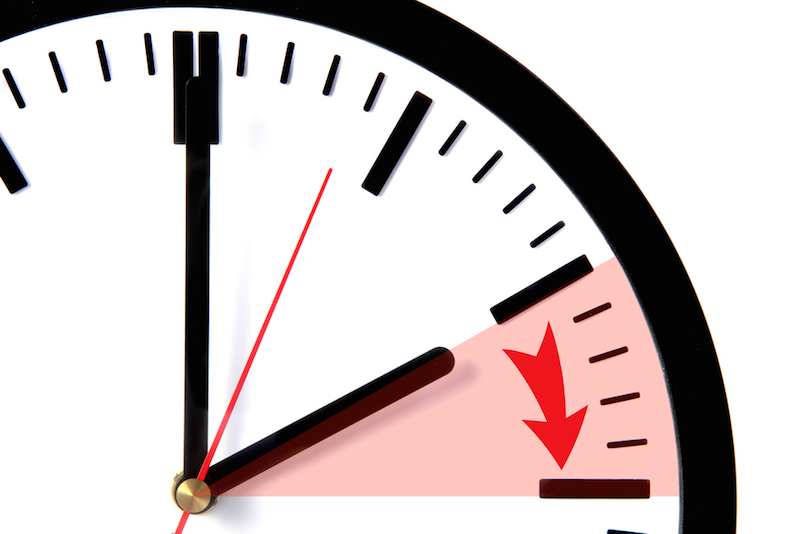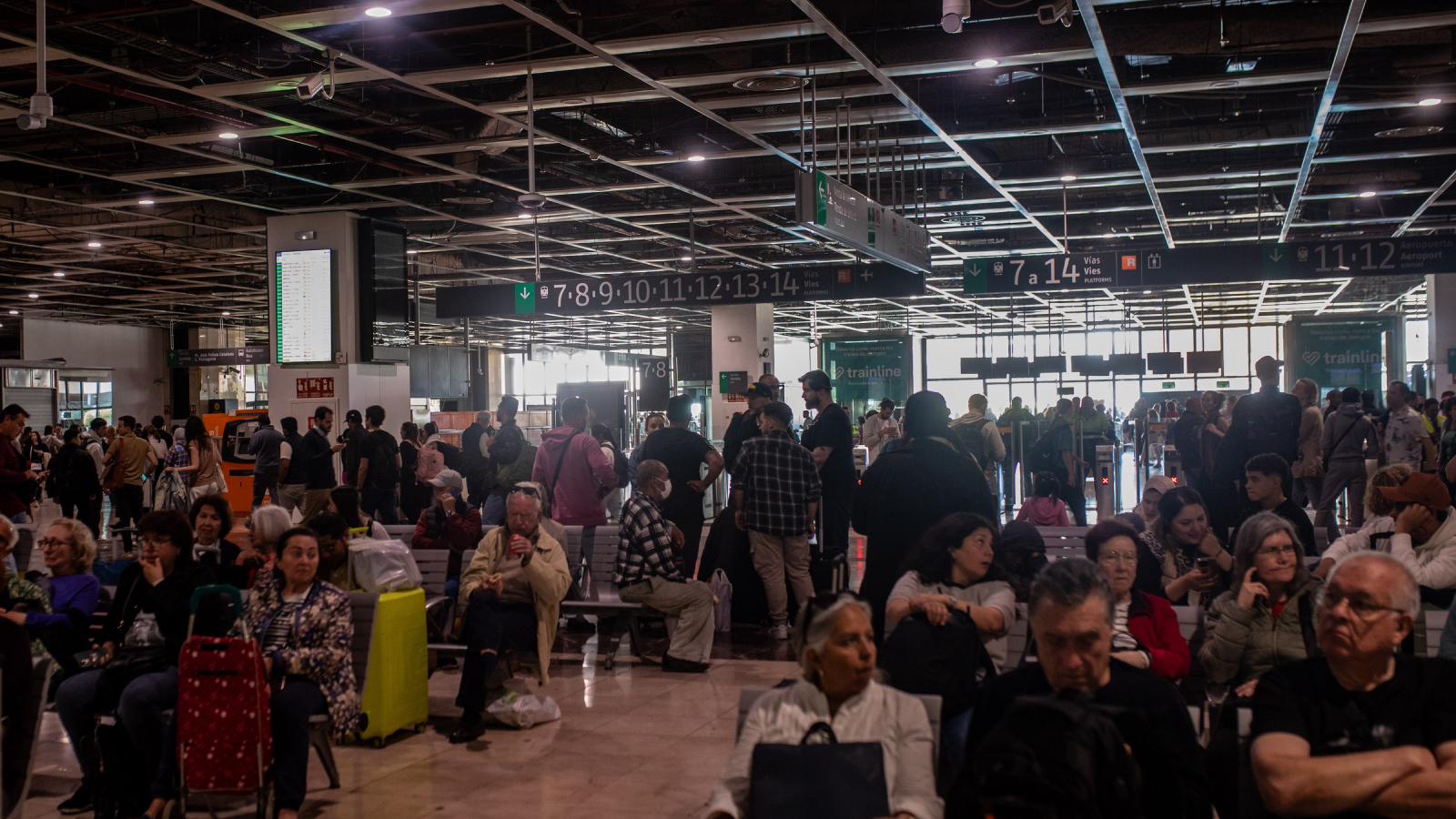Why Some People May Be Harder Hit by Daylight Saving Time

The transition to daylight saving time this Sunday at 2 a.m. may be particularly hard for people who are unhealthy, a new study suggests.
Researchers found that people who are obese or have obesity-related health problems have higher amounts of "social jet lag," which is when the body's internal clock is out of sync with a person's social and work clocks. Daylight saving time can worsen this condition.
Social jet lag can be measured as the difference in people's sleep patterns between the days they work and the days they have off, which for many people translates to the amount of sleep they get on weekdays compared with the weekend. The greater the difference between your weekday and weekend wake-up times, the more social jet lag you have.
Such changes in sleep time create a mismatch between people's internal clocks and their external schedules — and a switch to daylight saving time could temporarily throw off someone's bedtime schedule even more.
In the study, which appeared online (Jan. 23) in the International Journal of Obesity, the researchers looked at data from 850 men and women in New Zealand whom they had followed since birth. (None of the study participants worked overnight shifts.)
At age 38, the participants completed questionnaires about their sleep time preferences, along with their weights and heights. The researchers also ran tests to measure the participants' biological markers for diabetes and inflammation. [9 Meal Schedules: When to Eat to Lose Weight]
The findings showed that, compared with people who had little to no difference between sleeping times on work days and days off, those who had a greater discrepancy in their sleep patterns were more likely to be obese and metabolically unhealthy. Those with more social jet lag were at increased risk for diabetes, chronic inflammation and metabolic syndrome. (This syndrome is the name given to having a group of risk factors, such a large waistline and low levels of "good" cholesterol, that are associated with various health problems.)
Sign up for the Live Science daily newsletter now
Get the world’s most fascinating discoveries delivered straight to your inbox.
This shows that social jet lag can lead to similar symptoms as those caused by travel jet lag, such as sleep problems, indigestion, a loss of appetite, difficulty concentrating, irritability and a lack of energy, said Michael Parsons, who was one of the authors of the study. Parsons also works as a research scientist in the mammalian genetics unit at the Medical Research Council Harwell in Oxfordshire, England.
"Unlike travel-induced jet lag, which can cause temporary problems with metabolism, social jet lag can occur chronically throughout an individual's working life," Parsons said.
In fact, years and years of social jet lag could have serious, long-term consequences for people's metabolism, Parsons explained.
As little as a two-hour difference in sleep between work days and days off was found to increase a person's chances of having excess body weight and being unhealthy, the results revealed.
Although the study did not examine the reasons why changes in sleep patterns are associated with being overweight and more unhealthy, Parsons said other studies have suggested that a large shift in a person's sleep schedule causes that individual to burn fewer calories and release less insulin after a meal, resulting in higher blood-sugar levels.
The researchers proposed that "living against our internal clocks" may be contributing to rising obesity rates and its related health consequences, but they noted that at this point, they do not suggest this is a cause-and-effect relationship.
Springing forward
This weekend, when the United States and Canada spring their clocks ahead by one hour to usher in daylight saving time, millions of people will lose an hour of shut-eye. (Europeans, who refer to it as "Summer Time," won't set their clocks ahead for two more weeks, on March 29.)
Research shows that daylight saving time could affect health in ways that go beyond fatigue and general crankiness: Previous studies have suggested the one-hour shift every spring may increase the risk of heart attacks, suicides, injuries on the job and cyberloafing (which refers to surfing the Net or writing personal emails at work, rather than actually working).
Parsons said that for people who already have out-of-sync circadian rhythms, the switch to daylight saving time could cause additional social jet lag and may temporarily worsen it.
To ease the transition to daylight saving time, he recommended people try to match their workday sleep times with those of their days off, if they have flexible work schedules. If not, Parsons suggested getting regular exposure to natural light during the day, minimizing light exposure at night and eating at regular times to help the biological clock readjust to the new schedule.
Follow Live Science @livescience, Facebook & Google+. Original article on Live Science.
Cari Nierenberg has been writing about health and wellness topics for online news outlets and print publications for more than two decades. Her work has been published by Live Science, The Washington Post, WebMD, Scientific American, among others. She has a Bachelor of Science degree in nutrition from Cornell University and a Master of Science degree in Nutrition and Communication from Boston University.









